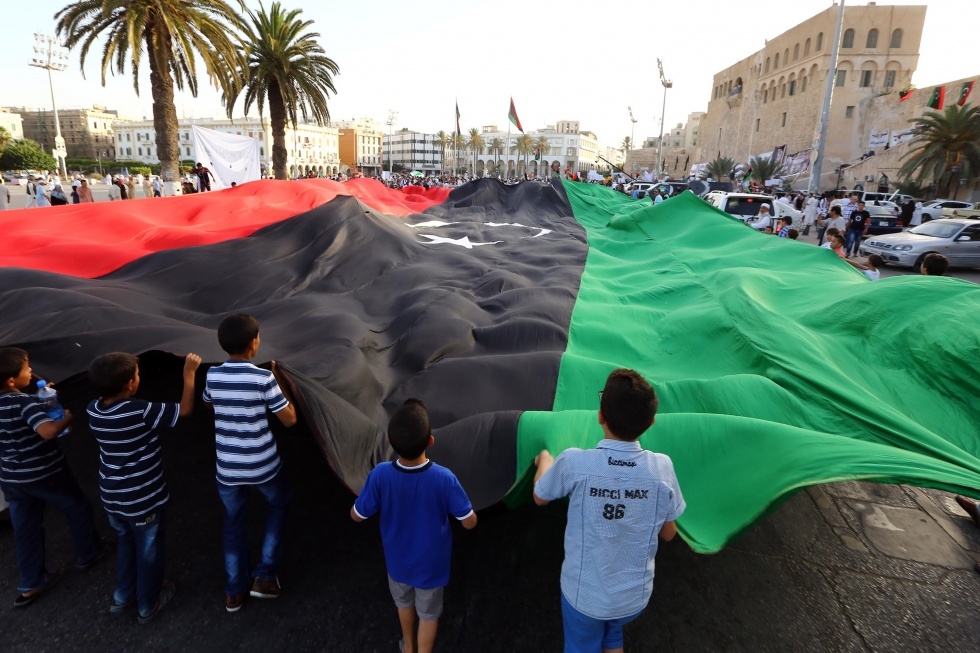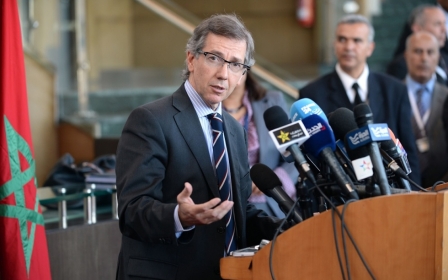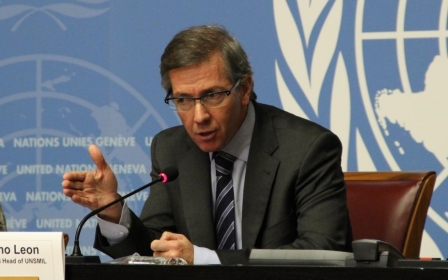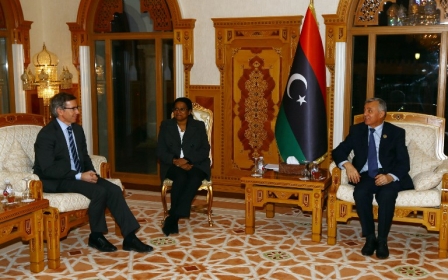Libya's GNC 'ready to participate in a unity government'

Libya's General National Congress (GNC), which convenes in capital Tripoli, said on Thursday that it was ready to participate in a unity government in the war-torn country and also to join in creating a presidential council.
"We are ready to participate in a unity government in Libya," Mohamed Maazab, a member of the GNC, said.
"We are also ready to partner in creating a presidential council in Libya," he added at a joint press briefing with United Nations special envoy to Libya Bernardino Leon in the Moroccan city of Skhirat.
Maazab called for defining the mandate of the planned unity government during ongoing Libyan talks in Morocco.
Libya's political rivals are currently involved in United Nations-sponsored negotiations in Morocco.
Maazab said the GNC had also proposed the presence of two chambers of parliament in Libya.
The oil-rich North African state has remained in a state of turmoil since an uprising ended the decades-long rule of strongman Muammar Gaddafi in late 2011.
Since then, the country's stark political divisions have yielded two rival seats of government, each with its own assemblies, institutions and military forces.
Two assemblies currently vie for legislative authority: the recently elected House of Representatives (HoR) in Tobruk, and the formerly elected GNC in Tripoli.
UN says 'differences' emerge in Libya peace talks
Meanwhile, the UN said on Friday it was trying to narrow differences between Libya's rival parliaments.
The differences emerged in written observations by the two sides on the agreement Leon is trying to clinch, said Samir Ghattas, spokesman for the UN mission in Libya (UNSMIL).
"We have received the text from the parties on their remarks. There are differences that we are working to narrow," he said in statement texted to AFP.
"But there are many elements that they are in agreement on," he added, without elaborating.
Leon did not meet the delegates on Friday,but he reportedly spent the day reviewing written observations to try to find common ground.
On 24 March, UNSMIL unveiled a six-point plan to end the crisis, including the formation of a transitional unity government until a new constitution is adopted and elections held.
Earlier Friday, Mohammed Chouaib of Libya's HoR, told AFP his delegation had handed Leon written observations.
"We hope that the dialogue will resume in order to reach a definitive agreement in the next two days," he added.
Maazab, of the rival parliament, said his group had also submitted remarks to Leon on the draft agreement.
He said the accord being considered aims to find "consensus on which authorities will take charge of the future transitional period".
Leon warned Wednesday that this round of talks would be the last.
"I really hope that the negotiators that are coming today are understanding that we cannot wait any more and this will really be the final round," he said.
Tawfiq Othman from the HoR delegation told AFP that he expects the talks to continue after Sunday.
"The UN mission is working today and tomorrow on our observations to formulate a third draft, which will be a new starting point for further discussions," he said.
One sticking point, Othman said, was the other side's insistence on being represented in the legislature, as well as in the government.
"This is very difficult for us. We agreed that it participate in the government and we are negotiating this point, but their participation in the legislature will be very difficult," he said.
Middle East Eye propose une couverture et une analyse indépendantes et incomparables du Moyen-Orient, de l’Afrique du Nord et d’autres régions du monde. Pour en savoir plus sur la reprise de ce contenu et les frais qui s’appliquent, veuillez remplir ce formulaire [en anglais]. Pour en savoir plus sur MEE, cliquez ici [en anglais].




